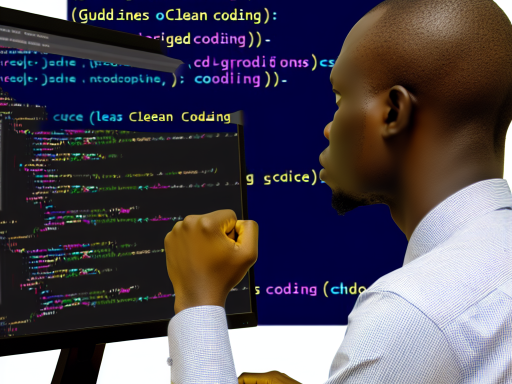Best Coding Practices
Best Coding Practices for Nigerian Developers
Adopting best coding practices is essential for writing clean, efficient, and maintainable code.
These practices improve code quality and enhance collaboration among developers.
Write Clean and Readable Code
1. Use Descriptive Naming Conventions
Choose descriptive names for variables, functions, and classes.
This practice makes your code more understandable.
Tips:
- Use Meaningful Names: Select names that clearly describe the purpose.
- Follow Naming Conventions: Stick to standard naming conventions like camelCase or snake_case.
- Avoid Abbreviations: Use full words instead of abbreviations.
2. Keep Functions Small and Focused
Write functions that perform a single task.
Small, focused functions are easier to test and debug.
Steps:
- Define One Task: Ensure each function accomplishes one specific task.
- Limit Length: Keep functions short and manageable.
- Reuse Code: Break down complex tasks into smaller functions for reuse.
Practice Consistent Coding Style
1. Follow a Style Guide
Use a consistent style guide throughout your codebase.
Consistency improves code readability and maintainability.
Examples:
- Indentation: Use consistent indentation, such as two or four spaces.
- Braces: Place braces consistently, either on the same or next line.
- Whitespace: Use whitespace to separate logical blocks of code.
2. Comment Your Code
Write clear comments to explain complex logic.
Comments help others understand your code.
Tips:
- Explain Why: Focus on explaining why, not what, the code does.
- Keep Comments Updated: Regularly update comments to match code changes.
- Avoid Over-Commenting: Comment only when necessary, without cluttering the code.
Ensure Code Efficiency
1. Optimize Performance
Write efficient code that runs quickly and uses minimal resources.
Performance optimization is crucial for scalability.
Strategies:
- Use Efficient Algorithms: Choose algorithms that perform well with large datasets.
- Minimize Loops: Avoid unnecessary loops and nested loops.
- Optimize Database Queries: Write efficient SQL queries to reduce execution time.
2. Test Your Code Regularly
Regular testing ensures your code works as intended.
Testing helps identify and fix issues early.
Testing Tips:
- Write Unit Tests: Test individual functions and modules.
- Use Automated Testing: Implement automated tests to ensure consistent results.
- Perform Code Reviews: Regularly review code with peers to catch potential issues.
Practice Version Control
1. Use Git for Version Control
Version control is essential for tracking changes and collaborating with others.
Git is the most popular version control tool.
Benefits:
- Track Changes: Easily track and revert changes.
- Collaborate: Work on the same codebase with multiple developers.
- Branching: Create branches for different features and merge them later.
2. Commit Frequently
Commit your changes frequently to avoid losing work.
Regular commits make it easier to track progress.
Tips:
- Write Clear Commit Messages: Describe the purpose of each commit.
- Commit Small Changes: Break down large tasks into smaller, manageable commits.
- Avoid Unnecessary Files: Exclude files that don’t need version control.
Keep Learning and Improving
1. Stay Updated
Technology evolves rapidly.
Stay updated with the latest coding practices and tools.
Ways to Stay Updated:
- Follow Blogs: Read coding blogs and tutorials.
- Join Communities: Participate in coding forums and communities.
- Take Courses: Enroll in online courses to learn new skills.
2. Refactor Regularly
Regularly refactor your code to improve its structure and efficiency.
Refactoring keeps your codebase clean and maintainable.
Refactoring Tips:
- Identify Problem Areas: Focus on parts of the code that need improvement.
- Simplify Code: Reduce complexity by simplifying logic.
- Test After Refactoring: Ensure the code works correctly after changes.
Conclusion
Following best coding practices is crucial for Nigerian developers to write clean, efficient, and maintainable code.
By focusing on clean code, consistent style, code efficiency, version control, and continuous learning, developers can improve their coding skills and contribute to high-quality software projects.
Embrace these practices to become a better coder and ensure your codebase remains robust and scalable.









